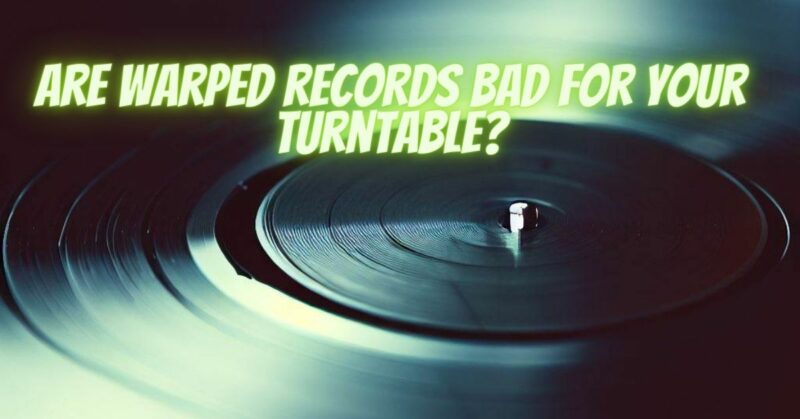Vinyl records, cherished for their unique sound and nostalgic charm, require proper care and maintenance for optimal playback. However, warping is a common issue that can affect vinyl records over time, leading to concerns about its impact on turntables. In this article, we will explore the effects of playing warped records on turntables and whether it poses any risks to the equipment.
Understanding Vinyl Record Warping:
Vinyl record warping occurs when the record’s surface deviates from its original flat shape. Common types of warping include edge warps, where the outer edge rises or lowers, and dish warps, where the record’s center sinks. Warping can be caused by exposure to heat, improper storage, or the pressure of stacked records.
The Impact of Warped Records on Turntables:
- Tracking Issues: When playing a warped record, turntables with fixed tonearms may experience tracking problems. The stylus may struggle to maintain consistent contact with the grooves, leading to audible distortions or skipping during playback.
- Uneven Wear: The stylus’s tracking along the uneven surface of a warped record can cause uneven wear on the stylus tip. Over time, this uneven wear may affect the stylus’s performance and result in decreased audio fidelity.
- Increased Vibrations: Warped records can generate additional vibrations as they spin on the turntable platter. These vibrations may transfer to the tonearm and other delicate components of the turntable, potentially affecting its overall performance.
- Misalignment: Playing warped records may lead to the misalignment of the tonearm, affecting the cartridge’s tracking ability. Misalignment can result in suboptimal sound quality and increase the risk of stylus damage.
Preventing Damage to Your Turntable:
- Inspection: Regularly inspect your vinyl records for signs of warping. Avoid playing severely warped records, as they can cause more significant issues for your turntable.
- Proper Storage: Store records vertically in a cool, dry environment away from direct sunlight and heat sources. Avoid stacking records to prevent warping.
- Quality Turntable: Invest in a quality turntable with adjustable tonearms and anti-skate mechanisms. These features can help mitigate the impact of slight warps during playback.
- Tracking Force: Ensure that the tracking force and anti-skate settings on your turntable are correctly calibrated. Proper calibration can reduce the risk of stylus damage and tracking issues.
Playing warped records on your turntable can potentially cause issues with tracking, increased vibrations, and uneven stylus wear. While slight warping may not pose significant risks to some turntables, severe warping can lead to more pronounced problems and potential damage.
To protect your turntable and ensure optimal vinyl playback, it is essential to handle and store records with care, avoid playing severely warped records, and regularly inspect your vinyl collection for any signs of warping or damage. By following these guidelines and investing in a quality turntable with adjustable features, you can enjoy your vinyl records while preserving the longevity and performance of your cherished turntable equipment.


